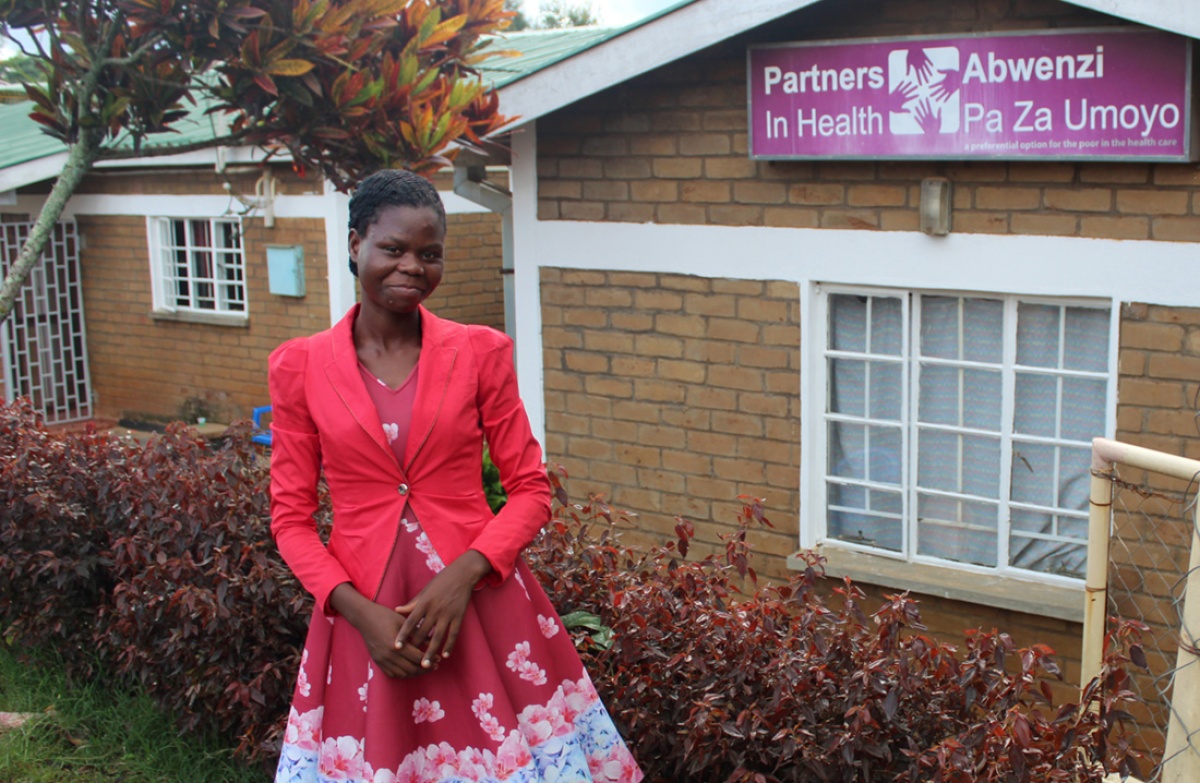Why Educating Girls in Rural Malawi Matters
PIH-backed program helps pay school fees and more to support higher learning
Posted on Mar 28, 2022

When 11-year-old Cecilia Kadzanja’s father died in 2011, her mother struggled to support six children. Although Cecilia desperately wanted to continue primary school in the rural Neno District of southwest Malawi, her family could not afford the essentials like notebooks, uniforms, and fees—the equivalent of less than $2 per child, and far more than her mother could spare to spend.
Then following an assessment of her family’s income, Kadzanja was selected to become part of a program sponsored by Abwenzi Pa Za Umoyo (APZU), as Partners In Health is known in Malawi. The Program on Social and Economic Rights (POSER), established in 2007, pays education-related costs for Neno District children. Since it began, POSER has helped cover school fees and the cost of other scholastic materials for more than 1,000 students in secondary schools and over 2,000 primary school children. Additionally, the program provides food, housing, and transportation assistance to qualifying families to ensure they can access care and remain healthy.
The importance of educating children, especially girls, cannot be overemphasized, program administrators say. Educated girls can make informed decisions about their lives, including having safe sex, waiting longer to marry, and taking control of the number of children they have. Kadzanja said the program has been life-changing. “I took this as an opportunity and promised myself to work hard in class,” she said. In 2009, Kadzanja was selected to go to Chiwale Secondary School in Neno. After a few setbacks, like repeating a year of school, she was accepted at University of Mzuzu.
Once again, however, Kadzanja was forced to grapple with the high cost of education. So she approached APZU staff for continued financial support. In 2015, APZU made the decision to extend its assistance program to include university students; Kadzanja was the second student to benefit from the new policy. She completed her degree program in Hospitality Management in 2021.
“I am more than happy to be a graduate,” she said. “It does not only open doors to my bright future, but more importantly, it has given hope to other girls in my community to believe that a girl child from Neno can also get educated to tertiary level.”
Kadzanja noted that many girls from her community drop out of school early, get married young and have children, thereby diminishing their chances of a professional, independent life. They are, she said, “without hope for a better tomorrow.”

